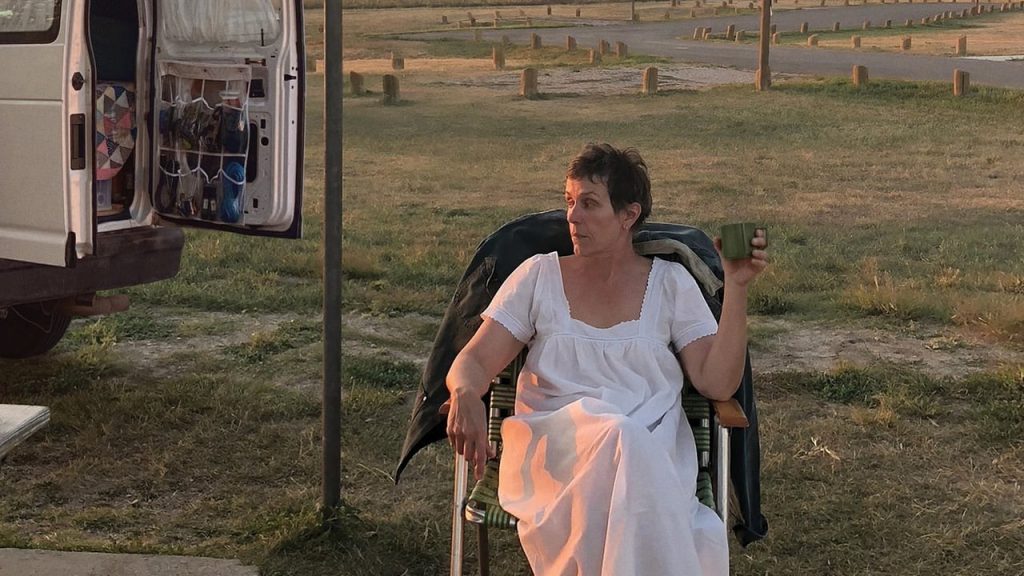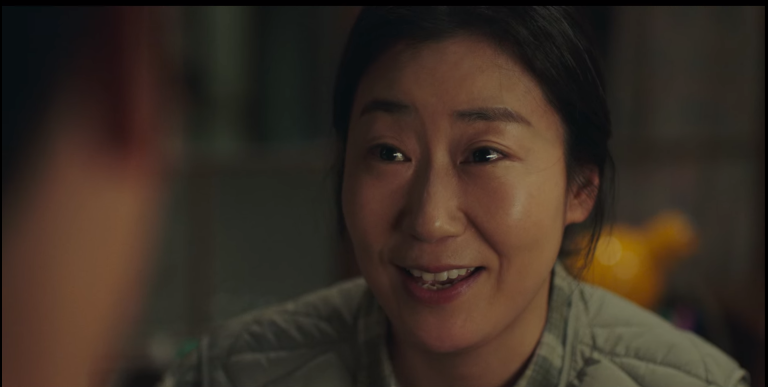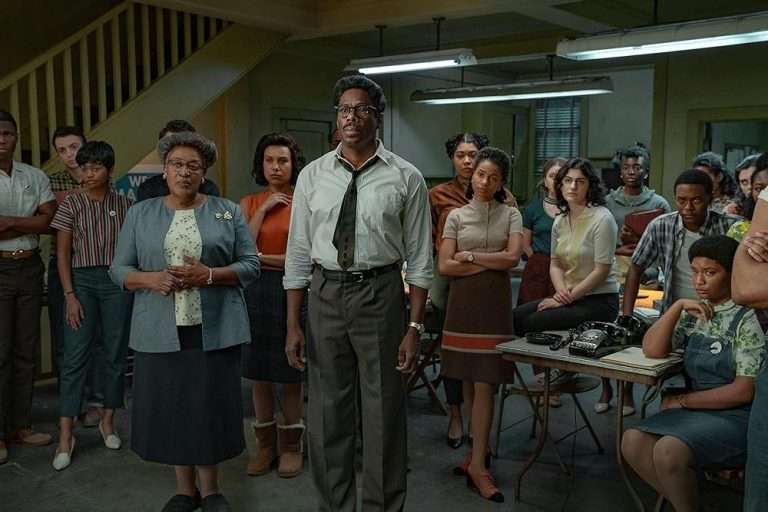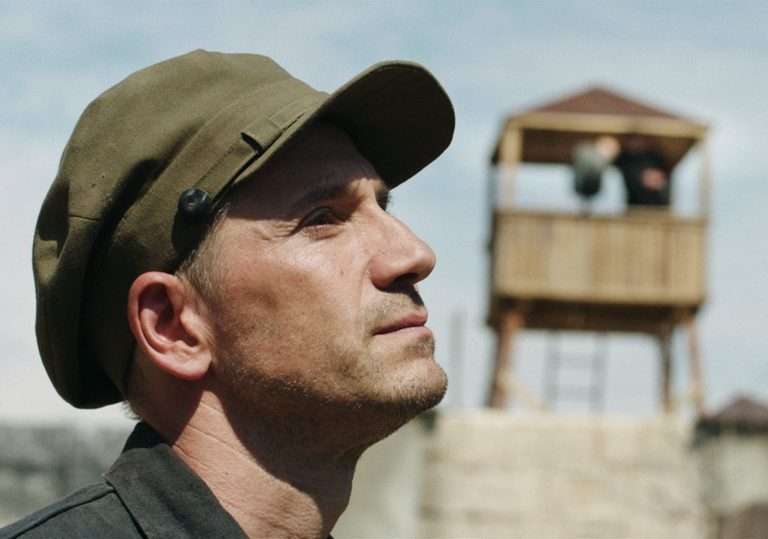Watching Chloe Zhao’s Nomadland (2020) (streaming on Hulu), I was reminded of a Virginia Woolf line- “Arrange whatever pieces come your way.” Zhao’s loosely structured, episodic film is centered on Fern (Frances McDormand), who had lived in Empire, Nevada with her husband Bo. He was employed for the company, in the mine. When the gypsum shut down, the town of Empire followed suit, erasing a zip code along with thousands of homes. In this tumultuous time, Bo passed away, leaving Fern completely alone- as her home was company housing too. She then decides to live inside her van- naming it Vanguard. Nomadland is Fern’s journey, as she streams along with similar lives, arranging herself in these scattered livelihoods.
Breathtakingly restrained, Nomadland (2020) is unlike anything you will see this year. Zhao constantly walks the line between documentary and feature, as her fictional creation Fern unites several real-life stories of nomads. Based on Jessica Bruder’s nuanced, thoughtful book of the same name, Zhao’s third feature unravels the economic ruthlessness of a society that drives people like Fern onto the road. But it does so without a prescription for necessary social commentary, as Zhao’s film is deceptively magical and dreamlike, capturing the geographical, ethnographic space to reveal resilience and strength. At the center of it all is Fern- as we see these people through her journey, through her eyes.
Related to Nomadland (2020): Frances McDormand Snubbed At The Golden Globes
Eager to find work, Fern makes friends wherever she goes. She befriends Linda May (playing herself) in Arizona, who almost steals the show with her wit and wisdom. At a rendezvous, Fern meets Swankie, who will later form the catalyst for her to briefly unravel the deepest doubts about herself. And as the bearded and soulful fellow mentor to these nomads, Bob Wells perhaps gets the best couple of lines and delivers them with soulful, elegiac simplicity. But it is David Strathairn as Dave who comes close to becoming a denouement, as his care for Fern alternatively becomes a threat for her chosen lifestyle, but Zhao balances this predicament with suggestive brilliance.
When Fern does land up at Dave’s place for a visit, she finds herself stranded in a world she had left behind. Zhao stages these scenes with a firm sense of urgency, take for instance where Fern silently sits on the staircase and observes Dave and his son at the piano, or when she awkwardly takes Dave’s grandson on her lap. At various stages of Nomadland, Fern is presented with these signals, but it is not that she does not acknowledge them. We do not know her reasons to hit back on the road but when we do, Zhao lets us gather our own pieces of faith.
Related Read to Nomadland (2020): 75 Best Movies of The 2010s Decade
When Vanguard breaks down at one point and a mechanic suggests her to buy a different vehicle- Fern’s answer is telling – “I can’t do that. … I live in there. It’s my home.” It is this faith that derides any explanation, one that is not meant to be explained. Nomadland (2020) works wonders because it willingly suspends any categorization, and understands loss- material, spiritual and emotional- with a conviction that there is hope, that every goodbye in itself feeds the promise of a new arrival.
McDormand here is placed beside several non-professional actors, and most of the time she listens- with opaqueness, warmth, and empathy. McDormand has mostly essayed strong characters, but here she is playing someone who has been beaten by life, who has been uprooted. It is her conviction that drives the film- and it is hard to imagine any other actor do what she does here. In one particularly moving sequence, all Fern does is listen to a fellow nomad reveal her life’s worth- and McDormand’s silence anchors more weight than an impassioned monologue. Fern is more of an embodiment, that rings true with an emotional intelligence like no other performance in recent memory. McDormand has never been better- this is the performance of a lifetime.
Also Read: The 40 Best Films of 2020
Teaming again with her frequent collaborator, cinematographer Joshua James Richards captures the spirit of Nomadland with a dazzling eye for colors and patterns. Zhao and Richards reveal a serene America, limitless in stretches of roads and patterns, with a capacity of people yearning and moving forward to seeing you again. The camera follows Fern as she follows the road, and it is breathtaking to see how she is placed within the frame as a kind of network, connecting to-and-fro without being trapped within the confines of a shot. Ludovico Einaudi’s score provides nothing less than poetry to these sequences. It is bewildering how Zhao chooses to look at Fern’s journey with serenity, and yet with a sure-footed tenacity for change- her editing choices here reveal the truth of the character with quiet reserve and dignity.
It is quite bewildering how raw and revelatory Nomadland (2020) feels, something so thematically dense yet strategically simple. The final act, in particular, feels nothing short of a revelation, as Fern decides to trace her roots for one last time. Nomadland is a film that subtly hints towards the desire for settlement. Perhaps it is suggested that way. But more so, it yearns for a story without any embankments, where the characters choose to stay away from the constraints of a society that seldom cares. Zhao’s film is a snapshot of an immediate past that rings especially true in a year where the anxiety of being trapped within isolation has hit the roof. It is rooted in its space and specific timeframe, yet feels universal in its understanding of personal grief and economic ruthlessness. Nomadland is a faultless, sublime epic and might just change your life. Zhao and McDormand give you a view that will lead you to come back again and again. In the end, you know Fern will be okay, and that is all that should matter.



![Somebody’s Darling [2016] : Supernatural Manifestation of Fraternity Culture](https://79468c92.delivery.rocketcdn.me/wp-content/uploads/2017/12/somebodys-darling-1-1024x576-768x432.jpg)
![Mogul Mowgli [2020]: ‘BFI-LFF’ Review – An Elegant Examination of Family Conflict, Culture, and Self-Reckoning](https://79468c92.delivery.rocketcdn.me/wp-content/uploads/2020/10/Mogul-Mowgli-highonfilms-768x572.jpg)


![Mukkabaaz [2018]: A bold spin on familiar underdog hero in Love](https://79468c92.delivery.rocketcdn.me/wp-content/uploads/2018/01/Paintra-Mukkabaaz.jpg)
